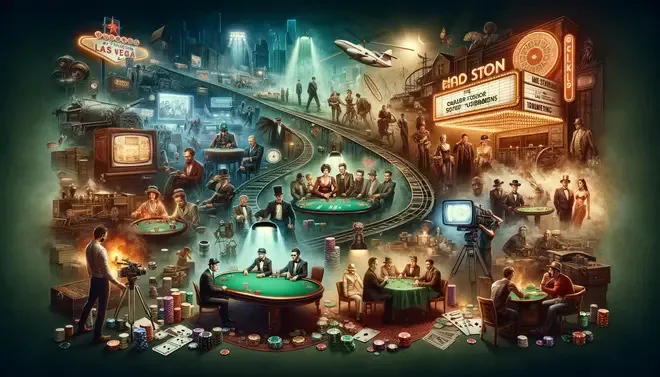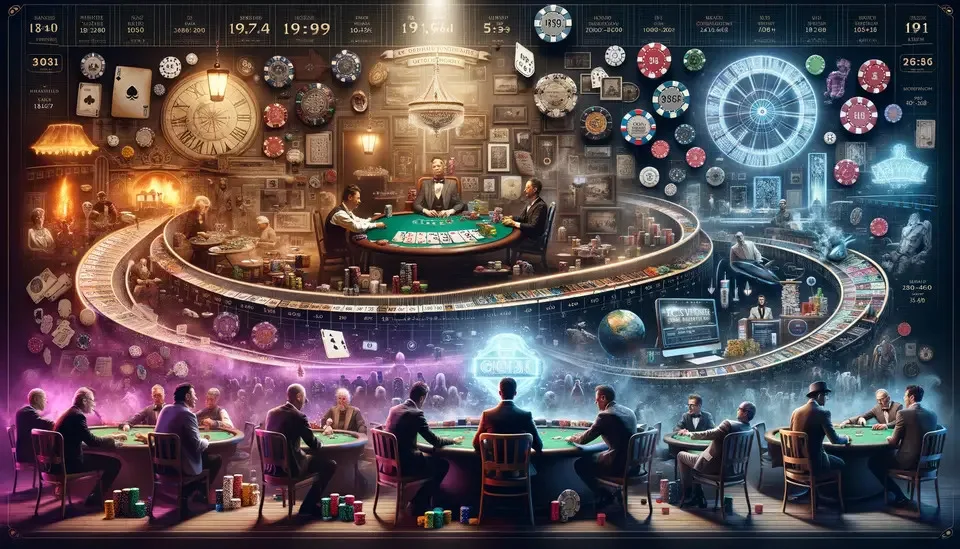The Evolution of Poker Tournaments: From Smoky Rooms to Global Stages

The game of poker, once confined to dimly lit, smoke-filled rooms and viewed with a mix of fascination and wariness, has evolved into a global phenomenon, with tournaments broadcasted on international television and streamed online to millions of fans. This journey from the card tables of the American frontier to the lavish casinos of Las Vegas and the digital arenas of the internet mirrors broader changes in society’s attitudes towards gambling and competition. It’s a story of how a game became a sport, and how that sport became an industry.
The Early Days of Poker Tournaments
Poker tournaments, as we know them today, have their roots in the informal gatherings of the 20th century, where the competitive spirit of poker was confined to saloons and private backrooms. These early tournaments were often impromptu, with rules and stakes varying widely from one table to the next. It was a time of legends, where the lore of poker began to take shape, filled with tales of remarkable bluffs and dramatic showdowns.
The Birth of the World Series of Poker (WSOP)
The modern era of poker tournaments can trace its origins back to 1970 and the inception of the World Series of Poker (WSOP) in Las Vegas. Benny Binion, a casino owner and gambling icon, invited the country’s best players to compete in what would become the first organized, high-profile poker tournament. The WSOP transformed poker from a pastime into a professional pursuit, setting the stage for the game’s future growth.
Poker Tournaments Go Mainstream
The ascent of poker into the cultural mainstream marked a pivotal chapter in the history of the game. This transformation was significantly propelled by the advent of televised events and the emergence of online platforms, such as GoldenPark casino games, which democratized access to poker by bringing the thrill of the tournament into homes around the globe. GoldenPark games, in particular, played a crucial role in popularizing poker, offering players an accessible and engaging way to participate in the game. As poker tournaments found their way onto screens and into living rooms, the game captivated a wider audience, turning casual viewers into avid players and contributing to the poker boom of the early 2000s.
The Rise of Online Poker Tournaments
Online poker platforms revolutionized the game, allowing for the organization of tournaments on a scale previously unimaginable. Players from around the globe could now compete for substantial prizes without leaving their homes, contributing to the game’s growing appeal. The accessibility and convenience of online play helped cultivate a new generation of poker enthusiasts.

Global Expansion and the Diversification of Poker Events
As poker’s popularity continued to soar, the game’s reach extended beyond the United States, with major tournaments taking place in Europe, Asia, and Australia. This global expansion was accompanied by diversification in the types of events offered, from high roller tournaments to charity events and celebrity poker games, each adding a new dimension to the poker world.
Technological Innovations and Their Impact
Technological advancements have been pivotal in shaping the modern poker tournament landscape. Streaming services and social media platforms have made it easier than ever for fans to follow their favorite players and tournaments in real-time, creating a global poker community. Innovations in software have also improved the security and integrity of online games, reassuring players and regulators alike.
The Future of Poker Tournaments
Looking ahead, the future of poker tournaments is bright, with the potential for further growth and innovation. Virtual reality (VR) technology promises to bring a new level of immersion to online poker, while the rise of esports suggests new formats and crossover events that could attract even larger audiences. As the game continues to evolve, one thing remains certain: poker’s ability to challenge, entertain, and bring people together will ensure its place in the world of competitive sports for years to come.
The evolution of poker tournaments from humble beginnings to a global phenomenon is a testament to the game’s enduring appeal. As technology advances and the world becomes more connected, poker remains a beloved staple of competitive entertainment, continually adapting to the times while holding on to the spirit of strategy and chance that has captivated players for generations.




